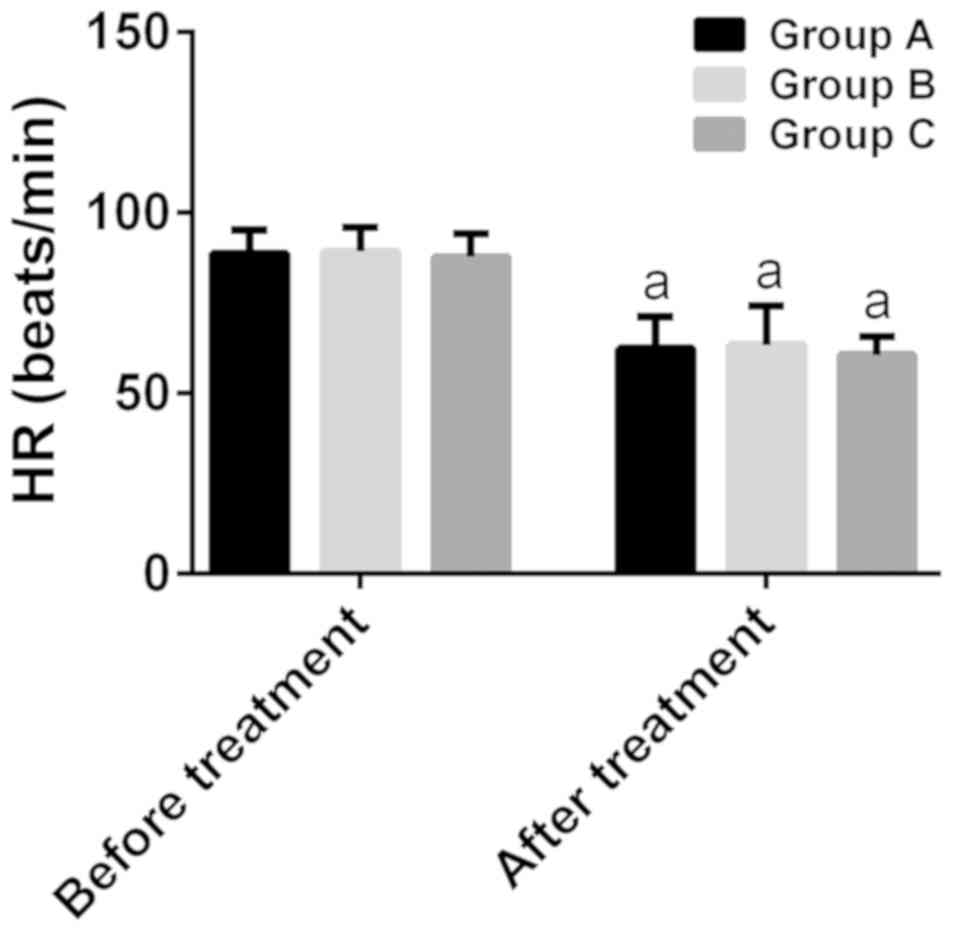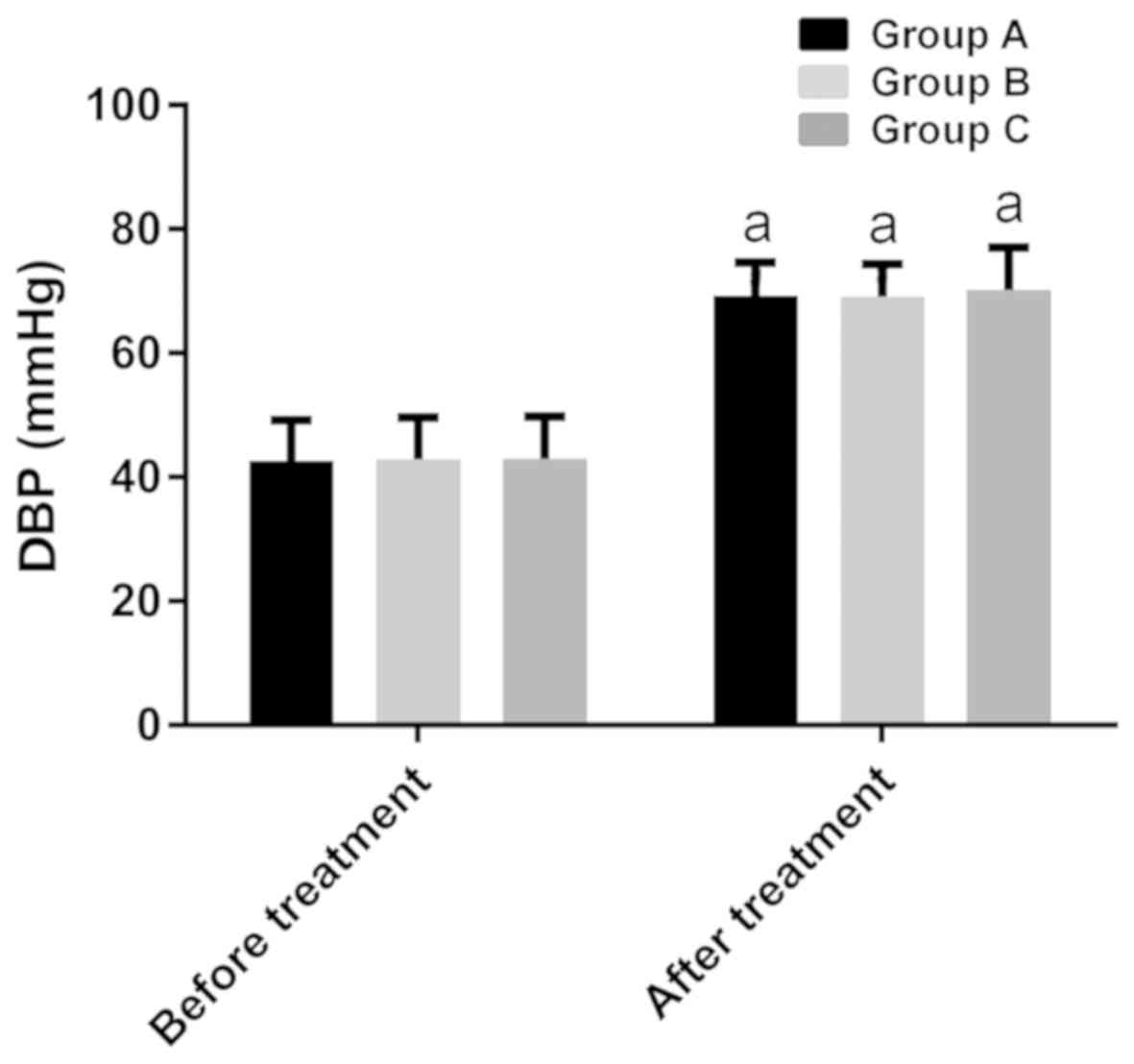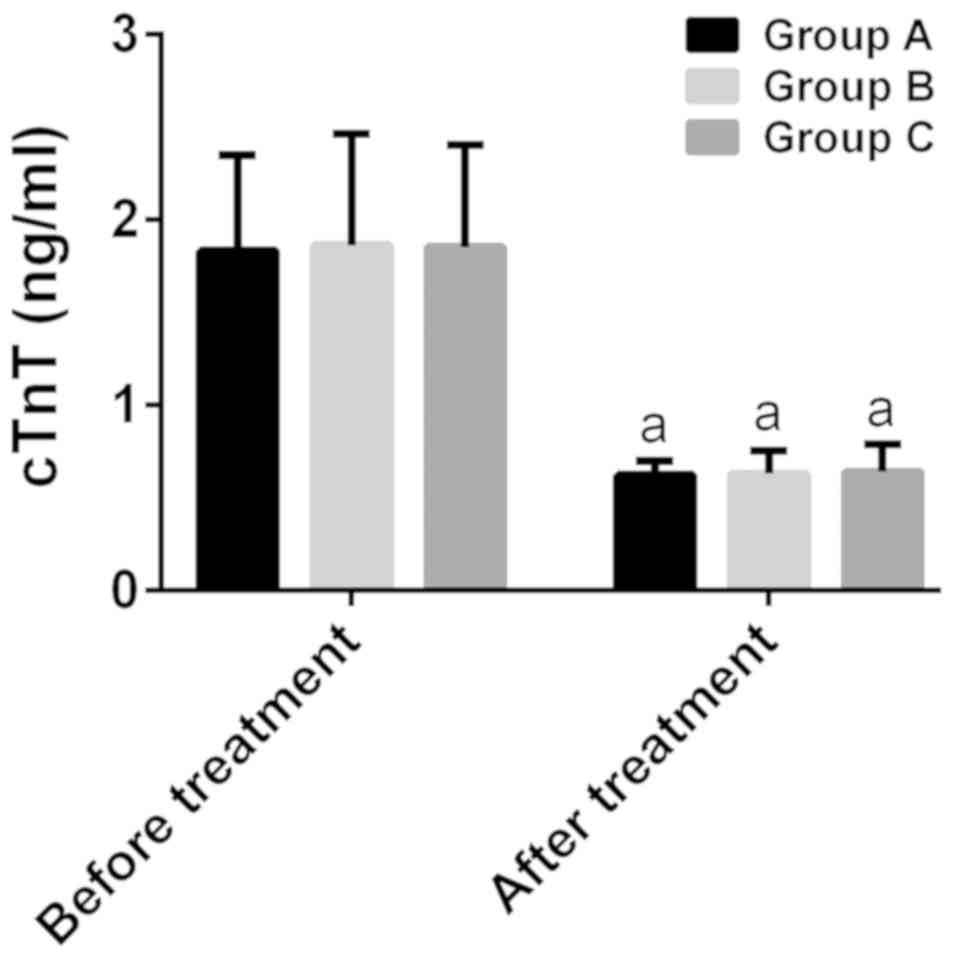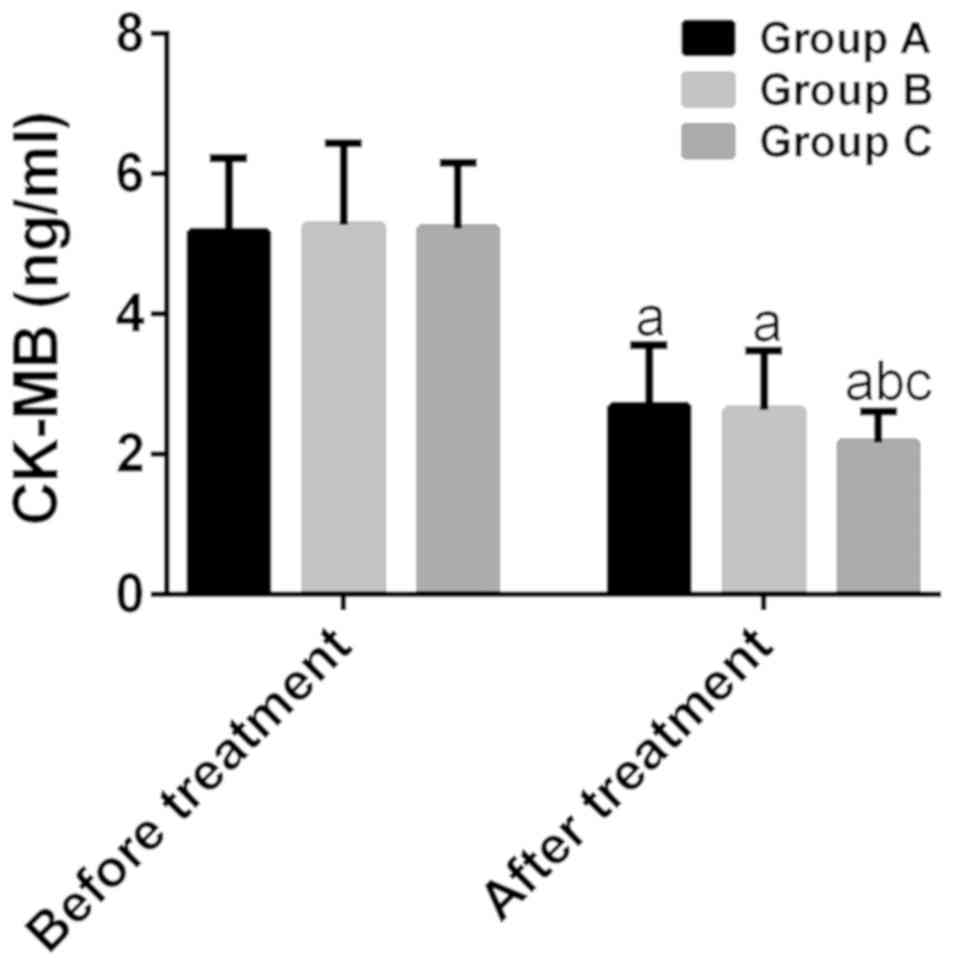|
1
|
Singer M, Deutschman CS, Seymour CW,
Shankar-Hari M, Annane D, Bauer M, Bellomo R, Bernard GR, Chiche
JD, Coopersmith CM, et al: The third international consensus
definitions for sepsis and septic shock (Sepsis-3). JAMA.
315:801–810. 2016. View Article : Google Scholar : PubMed/NCBI
|
|
2
|
Fleischmann C, Scherag A, Adhikari NK,
Hartog CS, Tsaganos T, Schlattmann P, Angus DC and Reinhart K;
International Forum of Acute Care Trialists, : International Forum
of Acute Care Trialists: Assessment of global incidence and
mortality of hospital-treated sepsis. Current estimates and
limitations. Am J Respir Crit Care Med. 193:259–272. 2016.
View Article : Google Scholar : PubMed/NCBI
|
|
3
|
Fleischmann C, Thomas-Rueddel DO, Hartmann
M, Hartog CS, Welte T, Heublein S, Dennler U and Reinhart K:
Hospital incidence and mortality rates of sepsis: An analysis of
hospital episode (DRG) statistics in Germany from 2007 to 2013.
Dtsch Arztebl Int. 113:159–166. 2016.PubMed/NCBI
|
|
4
|
Rhee C, Dantes R, Epstein L, Murphy DJ,
Seymour CW, Iwashyna TJ, Kadri SS, Angus DC, Danner RL, Fiore AE,
et al CDC Prevention Epicenter Program, : Incidence and trends of
sepsis in US hospitals using clinical vs claims data, 2009–2014.
JAMA. 318:1241–1249. 2017. View Article : Google Scholar : PubMed/NCBI
|
|
5
|
Polat G, Ugan RA, Cadirci E and Halici Z:
Sepsis and septic shock: Current treatment strategies and new
approaches. Eurasian J Med. 49:53–58. 2017. View Article : Google Scholar : PubMed/NCBI
|
|
6
|
Kadri SS, Rhee C, Strich JR, Morales MK,
Hohmann S, Menchaca J, Suffredini AF, Danner RL and Klompas M:
Estimating ten-year trends in septic shock incidence and mortality
in United States Academic Medical Centers using clinical data.
Chest. 151:278–285. 2017. View Article : Google Scholar : PubMed/NCBI
|
|
7
|
Marik PE, Khangoora V, Rivera R, Hooper MH
and Catravas J: Hydrocortisone, vitamin C, and thiamine for the
treatment of severe sepsis and septic shock: A retrospective
before-after study. Chest. 151:1229–1238. 2017. View Article : Google Scholar : PubMed/NCBI
|
|
8
|
Stoller J, Halpin L, Weis M, Aplin B, Qu
W, Georgescu C and Nazzal M: Epidemiology of severe sepsis:
2008–2012. J Crit Care. 31:58–62. 2016. View Article : Google Scholar : PubMed/NCBI
|
|
9
|
Anderson BJ, Reilly JP, Shashaty MGS,
Palakshappa JA, Wysoczanski A, Dunn TG, Kazi A, Tommasini A,
Mikkelsen ME, Schweickert WD, et al: Admission plasma levels of the
neuronal injury marker neuron-specific enolase are associated with
mortality and delirium in sepsis. J Crit Care. 36:18–23. 2016.
View Article : Google Scholar : PubMed/NCBI
|
|
10
|
Steingrub JS, Lagu T, Rothberg MB,
Nathanson BH, Raghunathan K and Lindenauer PK: Treatment with
neuromuscular blocking agents and the risk of in-hospital mortality
among mechanically ventilated patients with severe sepsis. Crit
Care Med. 42:90–96. 2014. View Article : Google Scholar : PubMed/NCBI
|
|
11
|
Marler J, Mohrien K, Kimmons LA, Vandigo
JE, Oliphant CS, Boucher AN and Jones GM: Effects of propofol on
vasopressor use in patients with sepsis and severe sepsis: A pilot
study. J Crit Care. 35:155–160. 2016. View Article : Google Scholar : PubMed/NCBI
|
|
12
|
Kawazoe Y, Miyamoto K, Morimoto T,
Yamamoto T, Fuke A, Hashimoto A, Koami H, Beppu S, Katayama Y, Itoh
M, et al Dexmedetomidine for Sepsis in Intensive Care Unit
Randomized Evaluation (DESIRE) Trial Investigators, : Effect of
dexmedetomidine on mortality and ventilator-free days in patients
requiring mechanical ventilation with sepsis: A randomized clinical
trial. JAMA. 317:1321–1328. 2017. View Article : Google Scholar : PubMed/NCBI
|
|
13
|
Fernando SM, Rochwerg B and Seely AJE:
Clinical implications of the Third International Consensus
Definitions for Sepsis and Septic Shock (Sepsis-3). CMAJ.
190:E1058–E1059. 2018. View Article : Google Scholar : PubMed/NCBI
|
|
14
|
Yamamura H, Kawazoe Y and Morimoto T:
Dexmedetomidine in patients with sepsis requiring mechanical
ventilation-reply. JAMA. 318:480. 2017. View Article : Google Scholar : PubMed/NCBI
|
|
15
|
Seymour CW, Liu VX, Iwashyna TJ,
Brunkhorst FM, Rea TD, Scherag A, Rubenfeld G, Kahn JM,
Shankar-Hari M, Singer M, et al: Assessment of clinical criteria
for sepsis: For the Third International Consensus Definitions for
Sepsis and Septic Shock (Sepsis-3). JAMA. 315:762–774. 2016.
View Article : Google Scholar : PubMed/NCBI
|
|
16
|
Godinjak A, Iglica A, Rama A, Tančica I,
Jusufović S, Ajanović A and Kukuljac A: Predictive value of SAPS II
and APACHE II scoring systems for patient outcome in a medical
intensive care unit. Acta Med Acad. 45:97–103. 2016.PubMed/NCBI
|
|
17
|
van Vught LA, Klein Klouwenberg PM,
Spitoni C, Scicluna BP, Wiewel MA, Horn J, Schultz MJ, Nürnberg P,
Bonten MJ, Cremer OL, et al MARS Consortium, : Incidence, risk
factors, and attributable mortality of secondary infections in the
intensive care unit after admission for sepsis. JAMA.
315:1469–1479. 2016. View Article : Google Scholar : PubMed/NCBI
|
|
18
|
Braun D: A retrospective review of the
sepsis definition after publication of sepsis-3. Am J Med.
132:382–384. 2019. View Article : Google Scholar : PubMed/NCBI
|
|
19
|
Kim KS, Suh GJ, Kim K, Kwon WY, Shin J, Jo
YH, Lee JH and Lee H: Quick Sepsis-related Organ Failure Assessment
score is not sensitive enough to predict 28-day mortality in
emergency department patients with sepsis: A retrospective review.
Clin Exp Emerg Med. 6:77–83. 2019. View Article : Google Scholar : PubMed/NCBI
|
|
20
|
Vaez H, Rameshrad M, Najafi M, Barar J,
Barzegari A and Garjani A: Cardioprotective effect of metformin in
lipopolysaccharide-induced sepsis via suppression of toll-like
receptor 4 (TLR4) in heart. Eur J Pharmacol. 772:115–123. 2016.
View Article : Google Scholar : PubMed/NCBI
|
|
21
|
Abdelmalik PA and Rakocevic G: Propofol as
a risk factor for ICU-acquired weakness in septic patients with
acute respiratory failure. Can J Neurol Sci. 44:295–303. 2017.
View Article : Google Scholar : PubMed/NCBI
|
|
22
|
Zamani MM, Keshavarz-Fathi M,
Fakhri-Bafghi MS, Hirbod-Mobarakeh A, Rezaei N, Bahrami A and Nader
ND: Survival benefits of dexmedetomidine used for sedating septic
patients in intensive care setting: A systematic review. J Crit
Care. 32:93–100. 2016. View Article : Google Scholar : PubMed/NCBI
|
|
23
|
Chen Y, Zhang X, Zhang B, He G, Zhou L and
Xie Y: Dexme-detomidine reduces the neuronal apoptosis related to
cardiopulmonary bypass by inhibiting activation of the JAK2-STAT3
pathway. Drug Des Devel Ther. 11:2787–2799. 2017. View Article : Google Scholar : PubMed/NCBI
|
|
24
|
Sonneville R, de Montmollin E, Poujade J,
Garrouste-Orgeas M, Souweine B, Darmon M, Mariotte E, Argaud L,
Barbier F, Goldgran-Toledano D, et al: Potentially modifiable
factors contributing to sepsis-associated encephalopathy. Intensive
Care Med. 43:1075–1084. 2017. View Article : Google Scholar : PubMed/NCBI
|
|
25
|
Ren X, Ma H and Zuo Z: Dexmedetomidine
postconditioning reduces brain injury after brain hypoxia-ischemia
in neonatal rats. J Neuroimmune Pharmacol. 11:238–247. 2016.
View Article : Google Scholar : PubMed/NCBI
|
|
26
|
Barnes J, Hunter J, Harris S, Shankar-Hari
M, Diouf E, Jammer I, Kalkman C, Klein AA, Corcoran T, Dieleman S,
et al StEP- COMPAC group, : Systematic review and consensus
definitions for the Standardised Endpoints in Perioperative
Medicine (StEP) initiative: Infection and sepsis. Br J Anaesth.
122:500–508. 2019. View Article : Google Scholar : PubMed/NCBI
|
|
27
|
McGregor BA, Murphy KM, Albano DL and
Ceballos RM: Stress, cortisol, and B lymphocytes: A novel approach
to understanding academic stress and immune function. Stress.
19:185–191. 2016. View Article : Google Scholar : PubMed/NCBI
|
|
28
|
Shankar-Hari M, Phillips GS, Levy ML,
Seymour CW, Liu VX, Deutschman CS, Angus DC, Rubenfeld GD and
Singer M; Sepsis Definitions Task Force, : Developing a new
definition and assessing new clinical criteria for septic shock:
For the Third International Consensus Definitions for Sepsis and
Septic Shock (Sepsis-3). JAMA. 315:775–787. 2016. View Article : Google Scholar : PubMed/NCBI
|


















